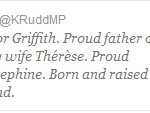As a Uber driver, it’s the time of the year when taxes are in the forefront. As a rideshare driver, one is bracketed in the realm of an independent contractor, who is now responsible for their own taxes. You would receive the 1099 form from the contractors but filing taxes can be frustrating at times.
As a current Uber driver, there are a number of tax deductions that every Uber driver is qualified for. They can claim deductions based on business related expenses and use of mileage rates. One can use mileage deduction when doing taxes or even opt to itemize expenses including fuel, insurance, maintenance, and the like, but one cannot qualify for both.
One just has to worry about mileage accumulated when conducting business when opting for mileage deductions, which is 57.5 cents/mile for miles driven during business. If you opt for the latter approach, the following is list of expenses used for claiming tax deductions
List of Expenses for Claiming Tax Deductions
· Uber Fee
Uber fees are pretty much straightforward especially with respect to parking fees when on a business ride. One can also include garage fees and meter fees under this criteria.
· Uber Supply
You can deduct things you buy for the rideshare business even if they are not vehicle-related, but related to business purposes, including drinks/ snacks for “passengers”. Some other things that are “necessary and ordinary” can be counted under this header.
· Fuel expenses
You can deduct fuel expenses with the help of receipts, especially if one is audited by the IRS. You can use tax deduction on fuel costs as long as it is part of Uber business. All route expenses when meeting with potential Uber drivers for signing up can be deducted under fuel costs as well.
· Registration & Insurance
Keep the registration and insurance receipts along with bank records related to servicing, repairs, tires, and even maintenance costs. They can be claimed.
· Repair & Maintenance
One can deduct some maintenance and repair costs as part of business matter but not entirely as it can be used for personal purposes too. You can deduct costs related to the tires, oil changes, replacement of brake pads, and anything related to car maintenance that is crucial for ride share business.
· Mobile & Internet Expenses
The cost of smartphones for Uber rides is tax deductible along with phone payments for the time one used it for business use. As rideshare drivers, smartphones are used for business purposes, and hence some cell phone bills can be claimed. You also need to attach expenses related to the internet charges since the route affirmation and ride costs are calculated automatically when connected to the web.
· Protective items
Any hi-visibility clothing or sunglasses that you wear during rides can be mentioned in protective safety gear for riders. Although you can only mention the percentage of use involved in these rides
· Car Depreciation
If you buy the car used for Uber, you can deduct the cost of your car over a 5-year period with the help of depreciation. The depreciation expenses can be spread throughout the 5-year period.
· Car Hire Fees
If you hire a car, you need to deduct the proportion of car lease payment especially when the car is being used for Uber
· Other relevant expenses
One can mention relevant expenses as required based on car maintenance that can be used as a tax deduction for car expenses.
Conclusion
As Uber driver, one can save money while filing tax returns by being alert about the payments and expenses throughout the year, and by keeping a systematic record of the same.
Disclaimer:
This Guest post is brought to you by Mike Watson. For more information on the Tax return and other financial services visit Universal Taxation Service.







Leave a Reply
You must be logged in to post a comment.